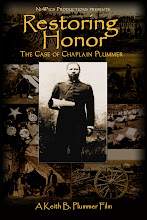
I had a very interesting talk with Mr. Cooks on October 9th in Washington, D.C. We talked about what led him to join the movement and travel down south while he was enrolled in college in Indiana. He told me that while driving in the south they decided to stop for food: "We should have known better but it all worked out."
A lot of the interview revolved around the strategic side of the protests, marches, and sit-ins. Mr. Cooks really wanted to get across that events were strategized and planned. "We didn't just get arrested to get arrested. Everyone couldn't get arrested at the same time. Someone had to keep track of who got arrested and where they were. We also needed to be able to continue the protests."
One note that I have to leave you with comes from the pre-interview conversation Mr. Cooks and I had about Rosa Parks. While talking about researching the movement, Mr. Cooks stated that the internet is great but people often stop at the little snippets they read on wikipedia and usually don't dig further. For example, he commented: "The biggest miscarriage of justice to sister Rosa Parks was the belief that she was just tired and didn't want to move out of her seat." Rosa Parks was not simply tired. She was a community activist who had earlier spent time with Dr. King and others at the Highlander Center in Tennessee, a meeting place where activists frequently gathered to share strategies for nonviolent protest (http://www.highlandercenter.org/). Ms. Parks made a conscious decision not to give up her seat because of racial injustice.

















.jpg)





.jpg)

